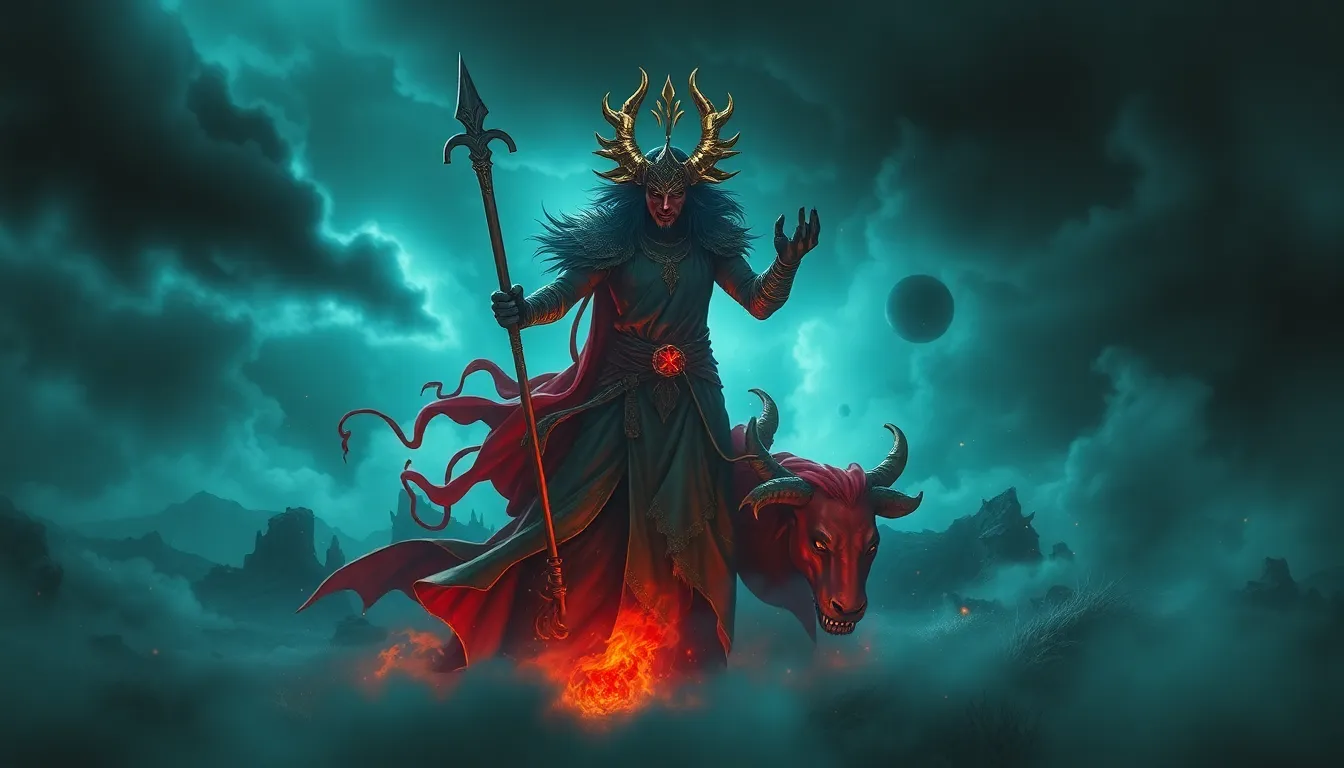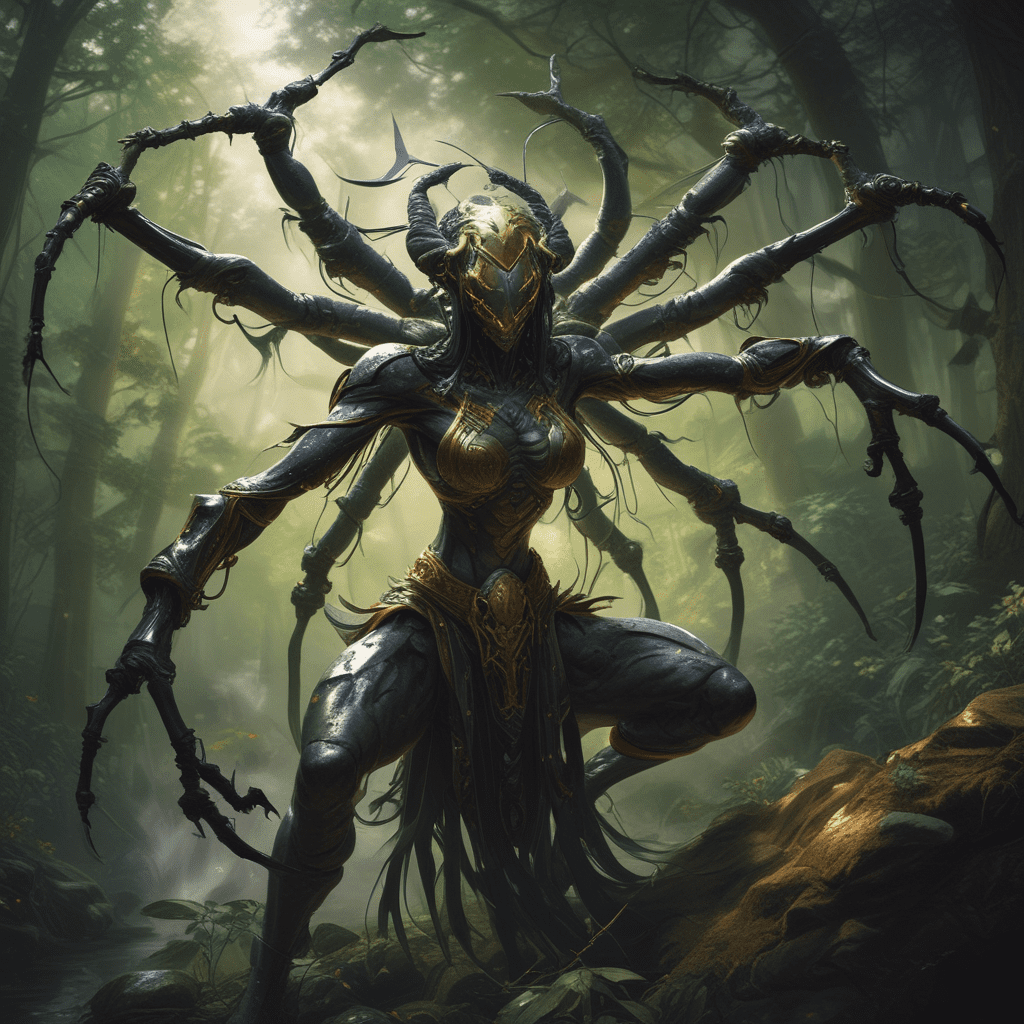1. Introduction: The Significance of Justice in African Mythology
Justice is a fundamental pillar of African mythology, shaping the moral values and ethical principles that guide societies across the continent. Myths, legends, and folk tales woven throughout African traditions serve as conduits for transmitting concepts of justice, fairness, and the consequences of wrongdoing. By exploring the rich tapestry of African mythological narratives, we gain insights into the diverse ways justice has been understood and implemented throughout history.
2. The Role of the Divine in Establishing Justice
In African mythology, the divine plays a pivotal role in establishing and upholding justice. Deities such as Obatala, the Yoruba creator god associated with purity and morality, are believed to oversee the cosmic order and ensure balance and harmony. Through divine intervention and guidance, the gods intervene in human affairs, punishing wrongdoing and rewarding virtuous behavior. Their actions reinforce the notion that justice is not merely a human construct but an inherent aspect of the universe.
3. The Ancestral Spirits as Enforcers of Justice
Ancestral spirits, revered figures who have passed on from the physical realm, hold significant sway in African justice systems. They are believed to have a vested interest in maintaining order and harmony within their communities. Ancestors act as guardians of tradition and morality, intervening when they perceive imbalances or injustices. Their presence serves as a constant reminder of the consequences of one's actions and the importance of upholding ethical values.
4. The Concept of Retribution and Vengeance
Retribution and vengeance, though controversial concepts, play a significant role in African mythological justice systems. In many stories, wronged individuals or their families seek retribution for harm inflicted upon them. Tales of wronged characters exacting vengeance emphasize the importance of holding perpetrators accountable for their actions and restoring balance to the community. However, these narratives also acknowledge the potential pitfalls of uncontrolled vengeance and the need for resolution and reconciliation.
5. The Importance of Harmony and Balance
Harmony and balance are central tenets of African mythology. Justice is often seen as a means of restoring or maintaining these delicate states. Myths and legends illustrate the consequences of disrupting equilibrium and the importance of resolving conflicts peacefully. Stories emphasize the interconnectedness of all things, underscoring the notion that justice is not solely about punishment but about healing wounds, repairing broken relationships, and fostering reconciliation within communities.
6. The Use of Proverbs and Folk Tales to Teach Justice
African proverbs and folk tales are repositories of wisdom and moral teachings that convey the principles of justice to younger generations. These stories often employ anthropomorphic characters and allegory to illustrate the consequences of virtuous and unrighteous behavior. Through fables and parables, children learn the importance of honesty, integrity, and respect for others, laying the foundation for a just and ethical society.
7. The Role of Storytelling in Preserving Justice Traditions
Storytelling plays a vital role in preserving and transmitting justice traditions within African communities. Oral narratives passed down through generations serve as didactic tools, reinforcing the values and customs that govern society. By listening to and retelling these stories, individuals internalize the principles of justice and understand their historical and cultural significance.
8. The Influence of African Mythology on Modern Legal Systems
The legacy of African mythology continues to influence modern legal systems. Concepts of restorative justice, which emphasize healing and reconciliation rather than solely punishment, have roots in traditional African justice systems. Elements of customary law, such as the use of elders and community involvement in dispute resolution, also reflect the influence of African mythology.
9. The Relevance of African Justice Principles in Contemporary Society
The principles of justice embedded in African mythology remain relevant in contemporary society. In a world grappling with issues of inequality, discrimination, and social injustice, African mythological narratives offer valuable insights into the importance of fairness, compassion, and the collective responsibility to create a more just and equitable society.
10. Conclusion: The Enduring Legacy of Justice in African Mythology
Justice has been an enduring theme throughout African mythology, shaping the moral fabric of societies across the continent. From the divine to the ancestral, from retribution to reconciliation, African mythological narratives provide a rich tapestry of perspectives on the pursuit of justice. By understanding and embracing these principles, we can draw inspiration from the wisdom of our ancestors and continue to strive for a world where justice prevails.
FAQ
Q: What is the role of the divine in African justice systems?
A: Deities play a pivotal role in establishing and upholding justice, intervening in human affairs to punish wrongdoing and reward virtuous behavior.
Q: How do ancestral spirits contribute to justice in African mythology?
A: Ancestral spirits act as guardians of tradition and morality, intervening when they perceive imbalances or injustices within their communities.
Q: What is the significance of harmony and balance in African justice narratives?
A: Harmony and balance are central tenets of African mythology, and justice is often seen as a means of restoring or maintaining these delicate states.
Q: How do proverbs and folk tales contribute to the teaching of justice in African cultures?
A: Proverbs and folk tales are repositories of wisdom that convey the principles of justice to younger generations, often through anthropomorphic characters and allegory.
Q: What is the enduring legacy of African mythological justice principles?
A: African mythological narratives continue to influence modern legal systems and offer valuable insights into the pursuit of justice in contemporary society.



